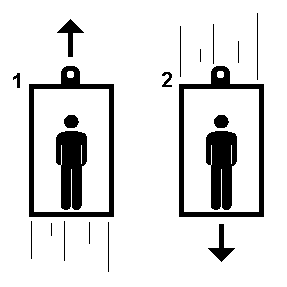
Another guest blog today, this from Patrick Carrajat, an elevator expert in New York that has testified for both plaintiffs and defendants. He writes today from the point of the engineering expert and the needs of the plaintiff’s counsel, but his points and check-lists can be modified for other purposes.
—————————————————
FINDING THE RIGHT EXPERT
There are several ways to locate the technical expert you need. Referral agencies abound, both on-line and traditional and either can serve the purpose of finding a suitable expert. The inherent pitfall with both type agencies is that they often are mere repositories for resumes and have little, if any knowledge of the proficiency of the expert being recommended. A quick internet search will turn up web pages for experts in virtually any field, but again you are simply given the information the expert chooses to post. In both of the above scenarios the onus will be upon you to investigate the background of the expert further, talking to their clients and interviewing the expert to see if they are right for your case. The best way to locate a suitable expert is either the old fashioned way, call a fellow attorney in a firm known for its personal injury practice and get a name or the new fashioned way, post your need to the NYLIST (New York State Trial Lawyers Association) or other such plaintiff oriented forums and see who is most recommended. Now that you located several names by any of the above methods how do you decide if the expert is right for you and your particular case?
INTERVIEWING THE EXPERT
In our hectic times it is virtually impossible to meet with each expert candidate personally so the telephone interview is the prevailing means of selecting your expert. The initial contact with the expert should begin with your disclosing the name and nature of the case since many popular experts may have already been retained by adverse counsel. Presuming that the expert has not been retained by another party and is willing to be retained by you these are questions that you should ask prior to deciding on your choice of expert.
1. How long has the expert been in practice?
2. How often has the expert been retained?
3. How often has the expert testified?
4. What percentage of testimony has been for the plaintiff?
5. What courts has the expert been qualified in?
6. Has the expert ever be dis-qualified as an expert?
7. Does the expert write their own affidavits and 3101(d)(1) or 26B filings?
8. Does the expert have copies of prior trial testimony?
9. Does the expert maintain files on opposing experts?
10. Does the expert maintain files of EBT (deposition) testimony by them?
11. Does the expert maintain files of EBT’s by others?
12. Does the expert maintain files of current appellate decisions pertinent to their field of expertise?
13. Will the expert assist you in preparing discovery items?
14. Will the expert write deposition questions for you?
15. Will the expert write trial questions for himself?
16. Has the expert actually worked on the type of equipment involved in your litigation?
17. Has the expert served on any code committee relating to the subject equipment?
18. Has the expert served on any industry groups?
19. Has the expert participated in seminars in their industry?
20. Has the expert conducted or been a panel member on such seminars?
21. Has the expert published any articles or books on the subject?
22. What professional associations does the expert belong to?
23. Does the expert maintain a library of technical articles and Code books?
24. If the field requires licensing does the expert have a current license?
25. Does the expert have a current CV to fax or e-mail to you?
26. What are the names of the last three attorneys worked for where the case was lost?
27. Does the expert have a client list of references to fax or e-mail to you?
Presuming that the above questions have been answered to your satisfaction proceed to checking selected references paying particular attention to the three cases that were lost. Once you are satisfied that you have found a suitable expert move to retain them at once.
DEALING WITH THE EXPERT
Most experts, like attorneys place a high value on their time and you will be best served by giving all information available to your expert as soon as possible. In virtually all cases involving a malfunctioning piece of equipment an on-site inspection will be required, arrange it as soon as practical after retention. The main purpose of this on-ste inspection is to allow the expert to precisely identify the equipment involved and protect the expert on cross. Any thinking defense attorney will, on cross ask when the on-site inspection was done. If the answer is never the next question will be, “So you are giving opinions today but you were not even interested enough to look at this piece of equipment?”
Give the expert ample time to prepare deposition questions and ask the questions even if you do not understand the reason for them being asked. Have the expert interview the plaintiff in person or over the phone, let the expert hear the plaintiffs story directly, minor details that mean little to a layman can be significant to the expert.
Every expert after jury selection should have an extensive meeting with the trial attorney and it should benefit both the lawyer and expert. The lawyer will have a good picture of the jury and can assist the expert in reaching the jury in a positive sense. Request that the expert dress for the meeting as they will dress at Court, make comments if appropriate.
YOUR OBLIGATIONS TO THE EXPERT
Once you have retained your expert you have certain obligations:
1. Promptly send your signed retainer and check (if requested) to the expert. Many experts are in high demand and will be contacted by multiple parties in a major case. The mere fact that you spoke to the expert does not, in most cases, mean that they cannot accept a retainer from another party if you have not formally retained them. Fax or e-mail your intentions and advise the expert when a signed retainer will be mailed.
2. Keep your expert in the loop. No expert wants to receive records or copies of depositions a week before trial (and yes it happens). No expert wants to be asked at trial if they have reviewed a deposition only to realize the deposition was never given to them (and yes it happens). No expert appreciates a call asking if they can do an on-site tomorrow.
3. Be sure you know what the expert wants you to ask for in discovery. Any qualified expert can give you a list of items they feel they need to properly address the issues in your case.
4. Don’t “paper” the expert. No expert, aside from those testifying to physical injury wants 200 pages of medical records. Most experts do want the original aided report from the police or emergency service responders and possibly the ER reports to see if the injury is consistent with the reported malfunction.
5. Know what your retainer agreement requires of you financially and pay your expert on a timely basis, the only thing they sell is time and their expertise. You will find it difficult to have a relationship with an expert who has been unpaid or waited more than 30-60 days for payment.
6. Don’t attempt to have your expert “shade” their opinion, most will not do it and those that do are violating the ethics of the profession. Your expert will put their opinions in the most favorable light for your client consistent with the admissible evidence reviewed.



